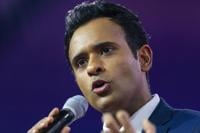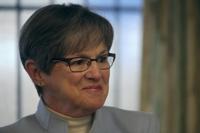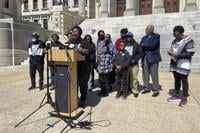BERLIN (AP) ÔÇö Alternative for Germany, or AfD, has established itself as a significant political force in the 12 years since it was founded, but it hasn't yet been part of any state or national government. That's a result of what is often called a ÔÇťfirewallÔÇŁ against the anti-immigrant, far-right party.
Other parties say they won't work with Alternative for Germany, which is under observation by the for suspected right-wing extremism, something that AfD objects to strongly. Its branches in three eastern states are designated ÔÇťproven right-wing extremistÔÇŁ groups. That's particularly sensitive in view of Germany's Nazi past.
That has sometimes forced other parties into unusual alliances to keep AfD out of power ÔÇö for instance, a three-party coalition straddling ideological divisions that governs the eastern state of Thuringia after AfD emerged as the strongest party for the first time in a regional election there in September.
Did Merz breach the firewall? Opinions are divided
Germany's conservative opposition leader, Friedrich Merz, drew accusations of breaking a taboo and damaging the firewall after he brought a nonbinding motion calling for many more migrants to be turned back at the country's borders to parliament last month. It thanks to votes from the far-right party. That was a first for post-World War II Germany.
Two days later, lawmakers an opposition-sponsored bill calling for tougher rules on migration that risked becoming the first draft legislation to pass thanks to AfD. The events in parliament prompted .
Merz insisted that his position was unchanged. He said that he didn't and AfD, won't go into government with it or form a minority government that needs its support, and didn't and won't negotiate with it on motions or legislation.















































